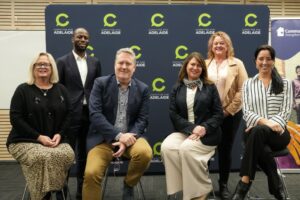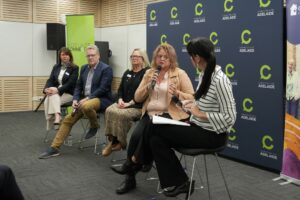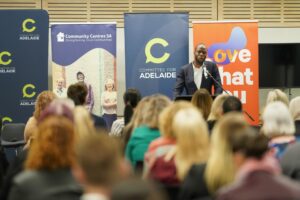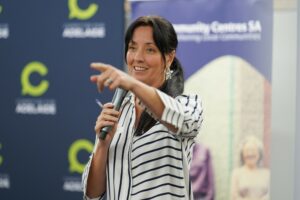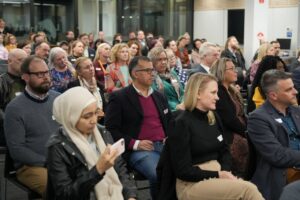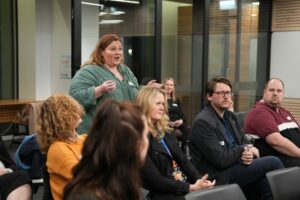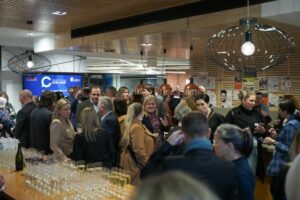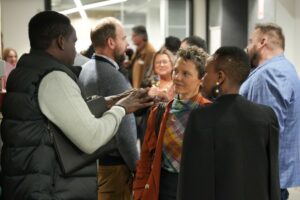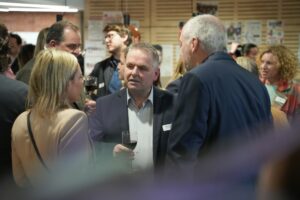At our recent Inclusive Communities member event, along with our partners Torrens University Australia and Community Centres SA, our expert panel took guests on a deeper dive into the challenges and barriers to social and economic participation faced by vulnerable and marginalised groups within our communities, including young people, and the enablers that are turning this around.
Our panel was moderated by Mix 102.3 radio presenter Ali Clarke our panel featured The Hon. Nat Cook – Minister for Human Services, Professor Ros Cameron, Torrens University Australia, Kylie Fergusen – CEO, Community Centres SA, and Fred Heidt – Principal/Director, Youth Inc.
At a time when there are more jobs than jobseekers and skill shortages are being felt sector-wide, it was critical for us to better understand the potential of untapped talent right here in Adelaide to help our businesses and industries grow and thrive.
Our unemployment rate was 4% in July – the highest in the nation, and our youth unemployment is more than double that of the general population at 9.6%. Our participation rate is 62.5% which is the worst of all mainland states and has been static for years.
The Honourable Nat Cook MP spoke about poverty being a massive contributor to social and economic participation in our communities and the need for South Australia to invest more in social capital.
We listened with interest and sadness to statistics presented by Community Centres SA with 1 in 4 Australians identifying as lonely and young people reporting the highest percentage of loneliness at 54%, with feelings of not being heard as the core contributing factor for our youth.
We heard that Community Centres are a great place to connect with community and offer culturally and psychologically safe and welcoming spaces for people to interact. Staff work closely with people as a whole with wrap around support to get the desired outcome of each individual.
With equity and inclusion front of mind, we heard from the panel about the need for safe, inclusive, and diverse approaches so that people can engage in their own terms be it through education, training, or employment.
We learnt about alternative learning pathways leading the way in Adelaide to help address participation barriers including Youth Inc’s new learning alternative designed for young people aged 17-24 who are looking for something different and Torrens University’s focus on equity and inclusion underpinning their no ATAR policy. There is also a need for more ideas in this space if we want to deepen the impact.
One of the key takeaways was that more needs to be done to fund and support alternative learning pathways if our state is serious about overcoming barriers to participation and improving access and support for those who need it most. It was clear that the siloed mentality of old is unhelpful in breaking down the systemic and structural barriers to participation and there is significant potential and value in multi-sector collaboration.
We look forward to continuing this important discussion with our members and stakeholders.
